Uganda
Flowering plants rise as if magically from Lake Victoria onto a wooden boat, giving it a leafy ambiance that enchants many visitors.
A man in Luzira, Uganda has found a unique way to recycle plastics by making a large vessel made entirely out of plastic waste and ecofriendly materials.
James Kateeba hopes his creation, called Floating Island, will encourage recycling and end littering in Lake Victoria.
“The vessel is anchored using cords attached to the mainland. It's sitting on a minimum of 10 tonnes of plastic bottles. It could hold up to about 100 to 120 people in comfort.”
Former tour guide James Kateeba started building the boat in 2017 to answer first the question of what to do with tonnes of plastic waste ending up in the lake when it rains heavily.
“Bottles get into Lake Victoria from runoff water, like when it rains. Most times actually it is runoff water that is not properly managed from the mainland they end up in the lake and at times people just throw them carelessly as they go to their day by day work.”
Next, he realized that the boat also could be an example of a sustainable business on the shores of Uganda's Lake Victoria — a floating restaurant and bar that could be unmoored to drift for pleasure.
Many who come to relax here on the lake shore in the suburb of Luzira, in the Ugandan capital of Kampala, have no idea of the boat’s roots, but Kateeba insists it’s first and foremost “a conservation effort,” one man’s effort to play his part in protecting a great lake from degradation.
The initial attraction becomes more compelling when tourists to Uganda learn that the greenery emerges from an innovative recycling project which uses thousands of dirt-encrusted plastic bottles to anchor the boat.
Jaro Matusiewicz, a businessman visiting from Greece says he had “never seen a place like this,” praising its “accommodative” atmosphere as he dug into fish and chips on a maiden visit.
“He has a big Island actually but I never heard of anything like this in Africa, especially using the bottles which are collected from Lake Victoria, which is now a big plus because you are not only cleaning the environment but also providing something very unique.,” says Matusiewicz.
Africa's Lake Victoria, the world’s second-largest freshwater lake which spans three countries, is plagued by pollution including runoff waste, sand mining and a decline in water levels in part due to climate change.
Layers of plastic waste float near some beaches during the rainy season, a visible sign of pollution that’s a worry for fishing communities heavily dependent on the lake.
Kateeba started by asking fishermen from nearby landing sites to collect plastic bottles for a small fee.
More than 10 tonnes of bottles were brought to him within six months.
Batches were tied up in fishing nets and packed with dirt, creating the solid bases anchoring the boat but which also are fertile grounds for climbing plants here and there.
Kateeba’s boat has become a huge attraction for people who visit the island from various parts of the country.
Joseph Bongomin, a regular at the floating island, says it is refreshing to have something different where the community members can come and enjoy.
"We had formerly a beach but due to water activities it got busted so we started travelling to other areas where we could get some recreation. But when this brother of ours came and opened this floating island, that’s when we started getting the news we started coming in," explains Bongomin.
"Later it started bringing in more impact and we felt our area, a development of this nature that had come, we need to be part of it," he says.
Kateeba’s effort of conservation is also paying off as the roots from the fig trees and shrubs provide a breeding ground for fish.
“We get fishermen catching catfish, catching lung fish and tilapia under this. We created space under this vessel which is good for the fish population in this area,” says Kateeba.
A familiar project
A similarly minded project was launched in 2018 from the beaches of the Kenyan coast, that one involving the building of a small boat, known as the Flipflopi, entirely from plastic waste collected from sandy shores and towns.
In 2021 the Flipflopi went on a voyage of Lake Victoria in order “to raise awareness of the pollution plaguing the region’s most critical freshwater ecosystem,” according to the United Nations Environment Program.




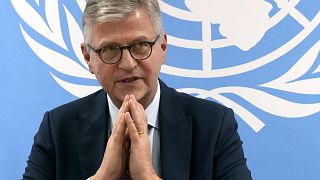
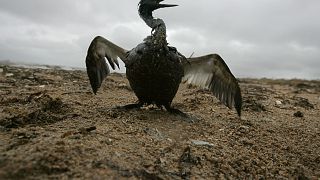
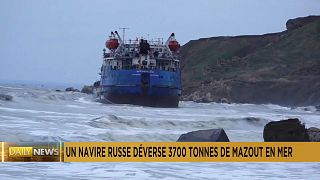
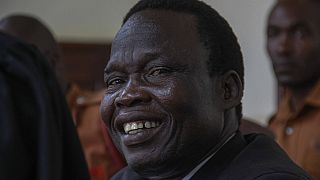



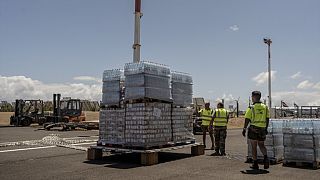

00:59
Mozambique braces for impact from cyclone Chido's landfall
01:43
Over 75% of earth's land is permanently drying: UN report
01:48
Mali's former environment minister launches plan to protect forests
01:14
Delegates express cautious optimism on second day of climate summit
01:40
Study finds private jet emissions have surge over past five years
01:37
Prince William announces Earthshot winners in South Africa